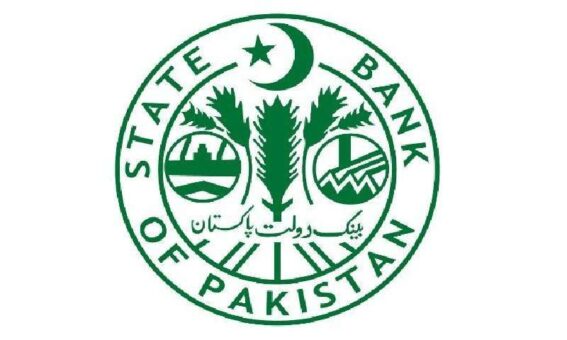KARACHI: State Bank of Pakistan (SBP) on Wednesday sold Market Treasury Bills (MTBs) at about 20 per cent cut-off yield hinting massive increase in benchmark policy rate.
“In today’s T-bills auction, the government aggressively borrows Rs258 billion at close to 19.9 per cent approximate 2 per cent higher than last auction signally at increase in policy rate,” said Mohammad Sohail, CEO, Topline Securities.
READ MORE: Ishaq Dar, Donald Blome discuss Pakistan challenging economic environment
It is pertinent to mention that the central bank in its last monetary policy announcement on January 23, 2023 increased the policy rate by 100 basis points to 17 per cent. The SBP cumulatively increased the policy rate by 1,000 basis points from September 2021 and brought it to 17 per cent.
The State Bank of Pakistan (SBP) is consistently increasing the benchmark rate in order to arrest the inflationary pressure. The latest cut-off yield clearly indicating that the SBP may further increase the benchmark rate.
READ MORE: Amnesty scheme proposal for enhancing dollars inflow rejected
Reports suggested that the after the implementation policy measures by the government to comply with the IMF conditions a new wave of price hike is imminent.
The government has announced phenomenal increase in prices of petroleum products, electricity and gas. Furthermore, to generate additional revenue, the government also announced mini-budget under which the normal sales tax rate has been increased to 17 per cent to 18 per cent, which would cause very high inflation in coming days.
Reports also suggested that the IMF had advised the government to further tighten the monetary stance in order to curb demand and arresting the inflation.
Analysts at Ismail Iqbal Securities said that in the SBP raised Rs245 billion below the target of Rs300 billion. The 3-, 6-, and 12-month yield rose sharply by 195 basis points, 206 basis points and 184 basis points, respectively.
READ MORE: Foreign Direct Investment into Pakistan plunges by 44 pc in 7MFY23
The SBP in its last policy announcement on January 23, 2023 stated that the broad money growth decelerated in the first half of the fiscal year 2022-2023, primarily reflecting the stress on the external account.
Domestic credit, on the other hand, expanded owing to seasonal rise in private sector credit along with increased budgetary borrowing because of reduced external financing. The disaggregated analysis of private sector credit shows retirement in consumer finance and moderation in working capital and fixed investment loans.
National Consumer Price Index (CPI) inflation remained at elevated levels despite some moderation in recent months. Compared to 26.6 percent y/y in October, the headline inflation slightly eased to 23.8 percent in November and 24.5 percent in December 2022.
READ MORE: Pakistan’s gold import bill soars by 107 pc in 7MFY23
Increase in food inflation remains the major contributor to this persistence in inflation. The core inflation also rose due to increasing core goods prices, especially durables.
Downward adjustment in fuel prices and reduction in fuel cost charges slightly muted the energy inflation in recent months. However, the uncertainty on their future path and expected near-term adjustments remain the major upside risks to the inflation outlook.
Reflecting these concerns, both the consumer and business inflation expectations have drifted upwards over the short and medium term in latest pulse surveys. “The MPC views that anchoring of inflation expectations is important to achieve the medium term inflation target of 5 – 7 percent by December 2024 and requires coordinated monetary and fiscal policy efforts.”
